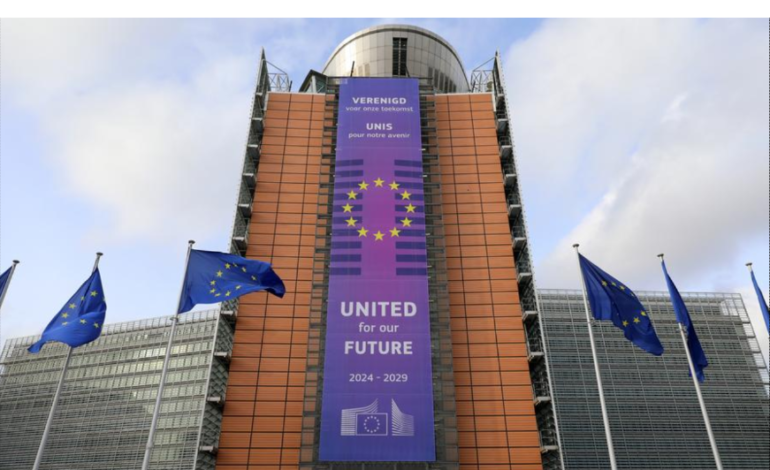
EU criticizes US tariff move, vows to respond firmly if targeted
The European Commission has criticized US President Donald Trump’s recent tariff impositions on Canada, Mexico, and China, calling them disruptive to global trade and harmful to all parties.
“The European Union (EU) regrets the US decision to impose tariffs on Canada, Mexico, and China,” an EU spokesman said, according to local media.
He emphasized the importance of open markets and adherence to international trade rules, describing them as essential for strong and sustainable economic growth. “Tariffs create unnecessary economic disruption and drive inflation. They are hurtful to all sides,” the spokesman added.
EU warns of a firm response
In reference to potential US tariffs on EU goods, the spokesman stated that the EU would respond firmly to any trading partner that unfairly imposes tariffs on EU products.
“Our trade and investment relationship with the United States is the biggest in the world. There is a lot at stake,” the spokesman noted.
Ongoing efforts for transatlantic cooperation
Since Trump’s second term began, Brussels has been advocating for strengthened transatlantic ties, focusing on avoiding a trade conflict with Washington through negotiations. However, Trump has persisted in his tariff plans, saying last week that he would “absolutely” impose tariffs on EU goods.
US tariff actions and global reactions
On Saturday, Trump signed an executive order to impose:
- 10% tariff on goods imported from China
- 25% tariff on goods from Mexico and Canada
These actions have sparked widespread opposition and immediate retaliatory measures:
- China’s Ministry of Commerce announced plans to file a complaint at the World Trade Organization and take corresponding countermeasures.
- Canadian Prime Minister Justin Trudeau declared that Canada would impose a 25% tariff on $21 billion worth of American goods, starting Tuesday.
- Mexican President Claudia Sheinbaum instructed the Secretariat of Economy to implement tariff and non-tariff measures to protect Mexico’s interests.
The situation continues to escalate as trade tensions between the US, EU, and other global partners intensify.